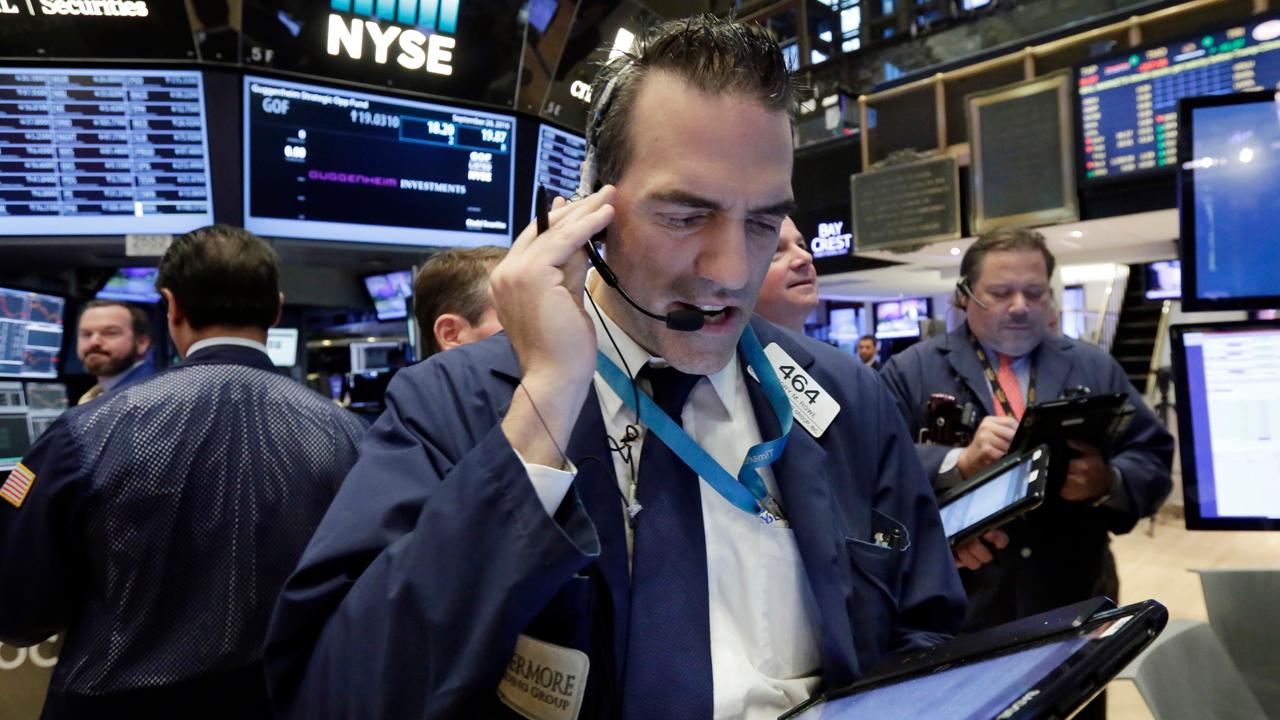The Dow may be at the mercy of politicians until earnings season
It's a long way between here and earnings season.
Or at least it probably feels that way for stock market bulls. Though they remain confident in the underlying strength of the global economy and upbeat about corporate earnings growth, the question will be whether they can keep their nerve in the face of headlines over rising trade tensions between the U.S. and China, political turmoil in Washington, the fallout from the Facebook scandal and any other arrows sent their way.
Ed Keon, chief investment strategist at QMA, expects earnings growth of 15% this year--a robust number enhanced by the corporate tax cut signed into law last year. And global growth still looks solid. When first-quarter earnings season gets under way in earnest late next month, those factors could help stabilize the stock market and perhaps return it to an upward trajectory, he said.
But it is the fear of a trade war that appears to be the dominant concern for investors after a week in which the Dow Jones Industrial Average tumbled more than 1,400 points, or 5.7%, to end Friday at a 2018 low, while the S&P 500 index logged a 6% weekly drop and the Nasdaq Composite saw a 6.5% weekly fall.
Globally, stocks shed $2.4 trillion in market cap over the past week, according to Howard Silverblatt of S&P Dow Jones Indices:
Hard to handicap
"In the short run, it's hard for anyone to handicap what's going to happen in a trade war or the possibility of a trade war," Keon said. "So until we get a little bit less tension on that front, I think it will be hard to make a lot of progress from here."
Trade tensions appeared to move to the fore on Thursday, when President Donald Trump announced plans to impose tariffs on $50 billion worth of Chinese imports. Beijing vowed to retaliate, but so far has outlined plans to impose tariffs on just $3 billion of U.S. goods, a move seen as leaving room for both negotiation and escalation.
Fears that a series of escalations could lead to a heightening of global trade tensions and potentially weigh on the world growth picture were widely blamed for the stock market's decline, but it wasn't the sole factor.
Don't forget Mueller
In fact, some market watchers doubt that the selloff--and increased volatility in general--had much to do with tariff plans that had been telegraphed well in advance by the administration.
Other suspects include the Thursday resignation of Trump's personal lawyer, who had urged the president to cooperate with the special counsel probe led by Robert Mueller. His departure could indicate that "the gloves are off," heralding open conflict between the president and special counsel, in what would be "not an especially equity friendly scenario," said Nicholas Colas, co-founder of DataTrek, in a Friday note.
But Colas went on to argue that the decline might simply reflect the Wall Street tenet that "someone always knows more than you."
"Washington, D.C., has become as leaky as Williams Sonoma's finest colander, and every major hedge fund and money management firm has their sources of incremental information there," he wrote. "It is their job to know what's happening next, and we must assume that they are effective in that role."
'Nothing wrong' with holding some cash
He agrees, however, that events in Washington are likely to dominate market action until earnings season kicks off--a factor that could be a problem if traders and investors who suspect others have an information advantage prove rationally unwilling to step in and save the day.
Should investors hunker down? Keon said QMA remains overweight stocks globally in its portfolios, but added "there is nothing wrong with holding some cash now that investors are nervous."
Overall, however, investors should keep in mind that after a year of historically subdued volatility, recent swings mark a return to "more normal market behavior."
Facebook fallout
Investors will also be watching the fallout from Facebook Inc."s data-privacy scandal. Shares (FB) of the social media giant skidded nearly 14% this week and weighed on the entire tech sector amid fears of increased regulation, analysts said. Tech was the biggest weekly decliner of the S&P 500's 11 sectors, falling 7.9%, and the tech-heavy Nasdaq Composite underperformed its major-index peers.
Investors will also look for more clues to the Fed's rate path after stocks seesawed but then ended lower in the wake of the Fed's widely expected decision to lift interest rates on Wednesday while policy makers maintained a forecast to deliver two more rate increases in 2018 but signaled a faster pace of tightening in coming years.




















